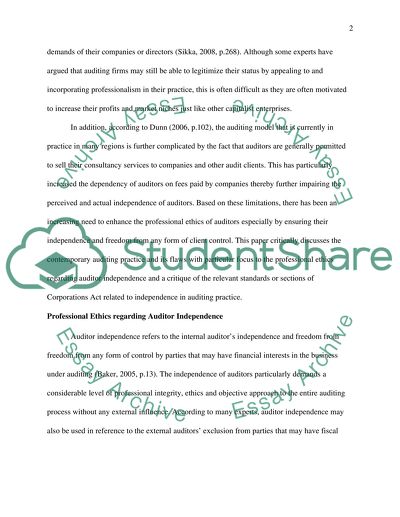Cite this document
(“Auditing Practices, Professionalism, Ethics, And Standards Essay”, n.d.)
Auditing Practices, Professionalism, Ethics, And Standards Essay. Retrieved from https://studentshare.org/finance-accounting/1691997-auditing-practices-professionalism-ethics-and-standards
Auditing Practices, Professionalism, Ethics, And Standards Essay. Retrieved from https://studentshare.org/finance-accounting/1691997-auditing-practices-professionalism-ethics-and-standards
(Auditing Practices, Professionalism, Ethics, And Standards Essay)
Auditing Practices, Professionalism, Ethics, And Standards Essay. https://studentshare.org/finance-accounting/1691997-auditing-practices-professionalism-ethics-and-standards.
Auditing Practices, Professionalism, Ethics, And Standards Essay. https://studentshare.org/finance-accounting/1691997-auditing-practices-professionalism-ethics-and-standards.
“Auditing Practices, Professionalism, Ethics, And Standards Essay”, n.d. https://studentshare.org/finance-accounting/1691997-auditing-practices-professionalism-ethics-and-standards.


